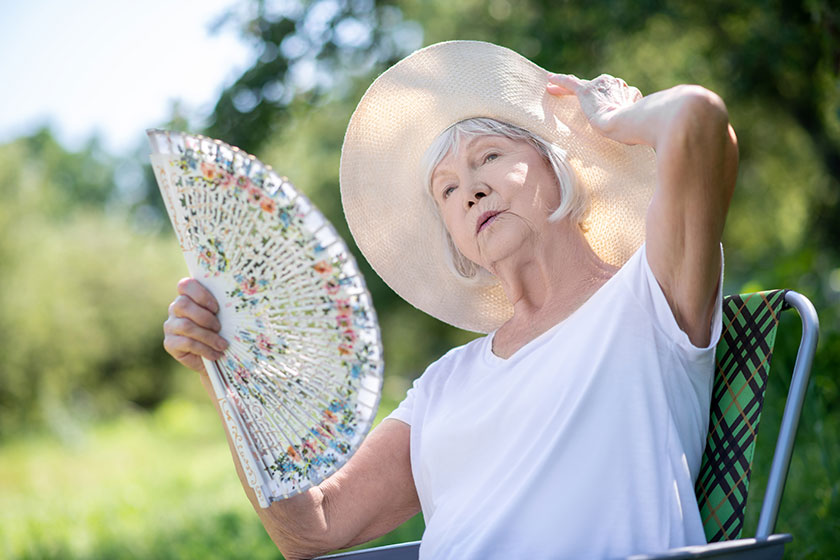The risk of senior overheating in summer is a significant concern due to the reduced efficiency of temperature regulation in older adults. Implementing effective strategies to prevent heat-related illnesses is essential for maintaining their health and safety during warmer months.
Recognizing the Risks of Heat Exposure
As people age, their bodies become less efficient at managing heat. This increased vulnerability stems from several factors, including a decrease in sweat production, which is the body’s natural cooling mechanism. Certain medications commonly taken by older adults can also affect hydration levels, making them more prone to overheating. Understanding the specific risks of senior overheating in summer is the first step toward effective prevention.
Keep the Environment Cool
Maintaining a cool indoor environment is one of the simplest and most effective ways to protect seniors from overheating. Air conditioning is the best defense against high temperatures. If air conditioning is not available, ensure that fans are strategically placed to circulate air.
Closing curtains and blinds during the hottest part of the day can also help reduce indoor temperatures. It’s important to regularly check the temperature in the living space and adjust accordingly to keep seniors comfortable.
Ensure Proper Hydration
Dehydration is a major contributor to overheating. Seniors should drink plenty of fluids throughout the day, even if they do not feel thirsty. Water is the best option, but other hydrating fluids like herbal teas or fruit-infused water can also be beneficial. Avoid drinks that can cause dehydration, such as those containing caffeine or alcohol. Keeping a water bottle within reach at all times can serve as a helpful reminder to drink regularly.
Dress Appropriately
Clothing choices can significantly impact how the body handles heat. Seniors should wear lightweight, loose-fitting clothing made from breathable fabrics such as cotton or linen. Light-colored clothing is preferable as it reflects, rather than absorbs, the sun’s rays. A wide-brimmed hat and sunglasses can offer additional protection when spending time outdoors, further reducing the risk of overheating.
Limit Outdoor Activities
During extreme heat, it’s wise to limit outdoor activities, especially during peak sun hours between 10 a.m. and 4 p.m. If outdoor tasks or activities are necessary, they should be scheduled for the cooler parts of the day, such as early morning or late evening. It’s also important to take frequent breaks in shaded or air-conditioned areas to avoid prolonged exposure to the sun.
Know the Signs of Overheating
Being aware of the signs of overheating can lead to prompt action, potentially preventing a more serious condition such as heatstroke. Early symptoms include excessive sweating, dizziness, weakness, and nausea. If any of these signs are observed, you should move the senior to a cooler place, provide fluids, and seek medical attention if symptoms persist.
Keep Your Loved Ones Safe This Summer
Preventing senior overheating in summer requires vigilance and practical measures. At our Senior Living in North Port, FL, we prioritize the well-being of our residents, especially during the hot summer months. Our community provides a cool, safe environment where golden agers can relax and stay hydrated while enjoying our range of indoor and outdoor activities.
From air-conditioned common areas to personalized care, our dedicated team ensures comfort and safety throughout the season. Explore our living options, from Assisted Living to Respite Care, and discover how we create a safe, enjoyable lifestyle for every resident.







